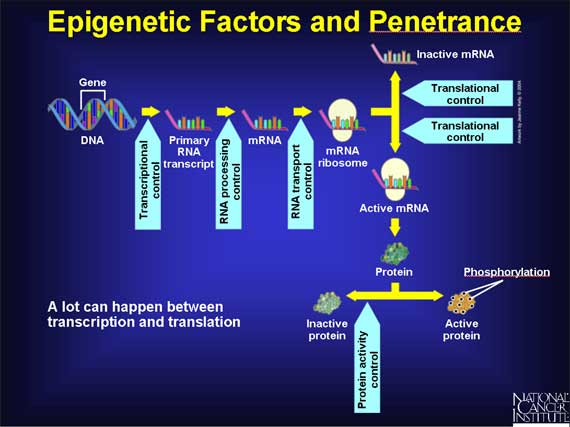|
Epigenetic factors are mechanisms outside the gene such as a cell's exposure to carcinogens or hormones, or genetic variations that modify a gene or its protein by methylation, demethylation, phosphorylation, or dephosphorylation. These factors can alter what is ultimately expressed; they can change a phenotype. For example, hormone and reproductive factors may influence the penetrance of certain cancer-linked mutations. Breast and ovarian cancer are more likely to occur in women with early menarche, late menopause, and a first child after age 30 (or no children at all). These factors are believed to be linked to a woman's exposure to estrogen and progesterone and their effects on cell differentiation in the breast that occur during pregnancy.
In cancer, both the genotype and the phenotype change over time. Epigenetic factors play a key role in these changes.

< Previous | Index | Next Slide > |